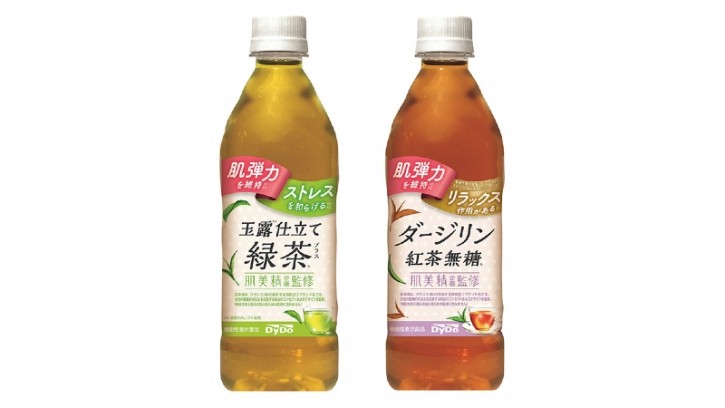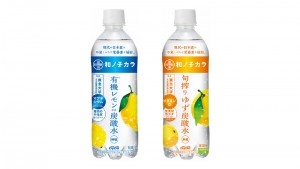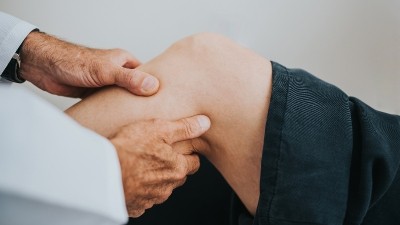DyDo DRINCO seeks to meet shifting consumer needs and fill nutrient gaps in Japanese diet with new functional beverages

As part of its active expansion into dietary supplements and nutritionals, DyDo DRINCO has renewed some of its products into Foods with Function Claims (FFCs).
For instance, the firm has worked with HADABISEI, a brand under cosmetics company Kracie Group, to develop a range of functional beverages called Supervised by HADABISEI.
Each product from this series is added with 100mg of gamma-aminobutyric acid (GABA), an ingredient that DyDo claims to have several functions that “support the health needs of women in a variety of situations”.
“GABA helps maintain skin elasticity and has a protective effect for those who are concerned about dry skin. It also temporarily relieves stress and fatigue caused by office work and housework, making one feel more positive, lively and motivated. Furthermore, it can help improve sleep quality,” the firm said.
Based on its in-house survey conducted among women aged between 20s and 60s in March 2023, it was found that consumers are not only increasingly health-conscious, but their perceptions of health are also shifting.
“From negative notions like ‘health equals to perseverance and pushing limits’, people have begun to adopt more positive perceptions, such as recognising the importance of both physical and mental health, and how ‘being healthy every day leads to happiness’.”
Another survey held last September showed that more than half the respondents (women in their 30s to 40s) have increased the frequency of “removing mask when going out” and “going and dining out” in the post-pandemic era.
Consequently, 38% of them stated that they are concerned about their skin condition, with skin care receiving more attention than body shape, slimming and exercise.
The Supervised by HADABISEI range is DyDo’s response to these changing needs.
The first product from this series, Hatomugi Blend Tea, debuted on December 25 last year. Two new flavours, namely Gyokuro Green Tea Plus and Darjeeling Black Tea Unsweetened, were recently launched on March 4.
Made with green tea, hojicha, oolong tea, corn, and two types of pearl barley, Hatomugi Blend Tea is said to be a well-balanced drink that exudes the aroma of pearl barley, subtle sweetness of corn, and richness of tea.
Gyokuro Green Tea Plus is composed of seven types of green tea leaves that underwent different degrees of roasting and steaming to achieve a deep flavour, while Darjeeling Black Tea Unsweetened is produced from 100% Darjeeling black tea leaves for a highly fragrant and refreshing taste.
“By adding functional benefits, we have transformed the products into something that is easier for consumers to understand and choose than ever before.”
Tasty way to fill nutrient inadequacies
Additionally, DyDo has released two new products under the “Wanochikara” brand on March 11.
It is the company’s first full-fledged health drinks brand that aims to make up for the nutrients lacking in the Japanese diet.
“We believe that living a long and fulfilling life is only possible if you lead a healthy lifestyle. We launched Wanochikara in 2022 to provide an easy and delicious way to replenish nutrients that are difficult to obtain in modern Japanese food.
“Due to westernisation of the locals’ diet, the intake of various nutrients has become insufficient compared to the past, according to the 2019 National Health and Nutrition Survey and the ‘Dietary Reference Intakes for Japanese (2020)’ report. Among these, we focused on magnesium and vitamin D.”
Magnesium is mainly ingested from seaweed and seafood, but data from Japan’s Ministry of Health, Labour and Welfare indicated that the consumption of these has decreased significantly from 2001 to 2019 among people aged 20 and above.
In fact, the intake of magnesium is strikingly lower than the recommended amount.
Recognising this gap, Wanochikara’s newly introduced Organic Lemon Carbonated Water is made with 100mg of magnesium, 0.7mg of vitamin B6, and maltobionic acid.
The other new product, Seasonal Yuzu Carbonated Water, contains 13.5μg of vitamin D as well as vitamin C.
The amount of nutrients incorporated are based on Tohoku University Graduate School of Agriculture’s recommendations to the firm.
“Some people are barely getting enough vitamin D from their diet, as data shows that the consumption of seafood is decreasing year by year. Moreover, due to the effects of sunscreen, the synthesis of vitamin D from sunlight tends to be insufficient.”
We will be taking a closer look at Healthier Product Innovation in our Growth Asia Summit 2024 this coming July, which will feature insights from a wide range of industry leaders and experts. Don't miss out – register here today!




















